Cardiac Procedures
After seeing your cardiologist, you may be referred for cardiac tests to further assess and support your health. We understand this can feel daunting if you’re unfamiliar with these tests, so below is a brief description of each test along with information on where you can schedule an appointment.
Electrocardiogram (ECG)
The electrical activity of your heart is measured using electrodes (dots) attached to your chest, wrists, and ankles. This records about 10 seconds of heart activity. This test, called an ECG, is usually performed by the cardiologist during your consultation or by one of our nurses beforehand. Your GP may also perform an ECG in their clinic.
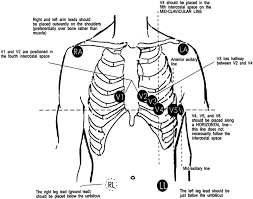
Transthoracic Echocardiogram / Echocardiogram
An “Echo” (echocardiogram) is an ultrasound of the heart that assesses its structure and function. Using a gel and a probe, it produces images and monitors the heart’s rhythm. The test typically takes about 30 minutes to complete.
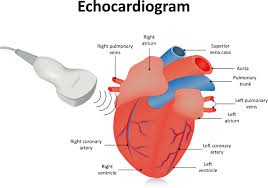
Ballarat Cardiology has its own echo technician—also known as a cardiac sonographer or echocardiographer—who travels around Ballarat, surrounding areas, and other regional locations, including:
Ballarat Locations
- Ballarat Cardiology
- Gentle Dermatology
- Carn-Brae Clinic
Surrounding Areas
- Beaufort Family Practice
- Central Highlands Health Network – Creswick
- Gordon General Practice
Regional Locations
- Central Highlands Health Network – Avoca
- East Wimmera Health Service – Charlton
- Graceland Medical Clinic – Dimboola
- Hamilton Medical Group – Hamilton
- Lister House Medical Clinic – Horsham
- Alan Wolff Medical Centre – Horsham
If the locations mentioned above don’t suite your travel needs or place of residence, echocardiograms are also available at the following sites:
- Lake Imaging – St John of God Hospital Ballarat
- Diagnostic Services – Ballarat Base Hospital
- Maryborough District Health Service
- East Grampians Health Service – Ararat
- Grampians Health – Stawell
*As the above locations use their own technicians, our administrative staff are unable to provide a specific date or time for your appointment. However, we can forward your referral to your preferred location, and their team will contact you to arrange the appointment. Please note, it is the patient’s responsibility to ensure the test is booked and completed.
When having an “echo” you must have intact skin – that is no uncovered wounds – in the area of your heart. Please ring our rooms if you are not sure.
Stress Echocardiogram (Stress Echo)
A Stress Echocardiogram (Stress Echo) is a test used to assess how well your heart and blood vessels function under physical stress. During the procedure, you will walk on a treadmill while your doctor monitors your blood pressure and heart rhythm. Once your heart rate reaches a peak level, ultrasound images of your heart will be taken to evaluate whether your heart muscle is receiving enough blood during exercise.
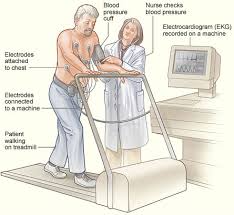
Where:
- Lake Imaging St John of God Hospital Ballarat – Please note, this test must be booked through Ballarat Cardiology. Our administrative staff will assist you in scheduling the appointment directly.
- Diagnostic Services – Ballarat Base Hospital
Stress Electrocardiogram (Stress ECG)
A Stress ECG is a test that assesses how well your heart and blood vessels respond to physical exertion. You will walk on a treadmill while your doctor closely monitors your blood pressure and heart rhythm throughout the exercise.
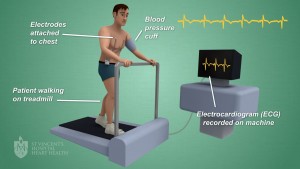
Where:
- Diagnostic Services – Ballarat Base Hospital
- Ballarat Cardiology – This test is currently unavailable, we will update patients once it becomes available again.
Holter Monitoring
Holter Monitoring records the rhythm/palpitations/black outs of the heart for 24hrs-7days during normal activity. A mobile device Hangs loosely around the neck by a strap/clipped to waistband with electrodes on chest. Patients are asked to record symptoms/feelings while wearing the Holter Monitor before returning to the clinic it was fitted at to have removed. It is often not visible through clothing.
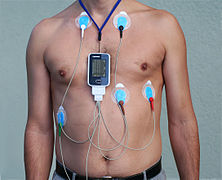
Where:
- Ballarat Consulting Rooms – Reported by our Doctors – Book in our rooms or online
- Dorevitch Pathology – Ararat
- Clarendon Medical Centre – Maryborough
- Nightingale Clinic – Maryborough
- Daylesford Springs Medical Centre
- Dimboola Medical Centre – Reported by our Doctors – Call
- Hamilton Family Practice – Reported by our Doctors – Call
- Horsham Wimmera Medical Centre – Reported by our Doctors – Call
- Rural Northwest Health – Reported by our Doctors – Call
- St Arnaud Medical Centre – Reported by our Doctors – Call
- Stawell Medical Centre
24 Hour Blood Pressure Monitor
Small recorder around waist/shoulder which checks blood pressure every 15 minutes during the day/20 minutes at night.
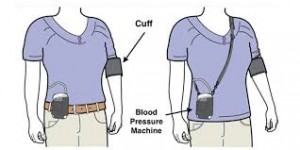
Where:
- Ballarat Consulting Rooms – Reported by our Doctors – Book in our rooms or online.
- Diagnostic Services – Ballarat Base Hospital
- Australian Clinical Labs Pathology – Creswick
CT Coronary Angiogram (CTCA)
CT Coronary Angiography is a specialized form of CT scanning used to take images of the coronary arteries of the heart (angiograms). These arteries supply blood to the heart muscle and disease of these vessels (atherosclerosis) is responsible for most heart attacks.
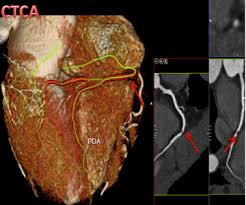
WHERE:
- Lake Imaging – St John of God Hospital Ballarat
MIBI Stress Test or Myocardial Perfusion Study
A MIBI Stress Test is a Nuclear Medicine test that lets your doctor know how well your heart muscle is being supplied with blood.
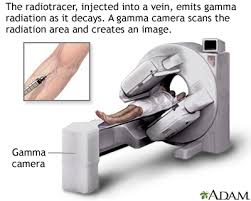
Where:
- Lake Imaging St John of God Hospital Ballarat
Chest Xray (CXR)
A Chest Xray is a painless, noninvasive test that creates pictures of the structures inside your chest, such as your heart, lungs, and blood vessels. “Noninvasive” means that no surgery is done and no instruments are inserted into your body
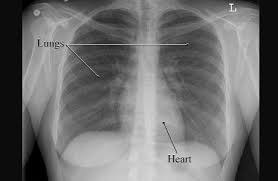
Where:
- Lake Imaging – St John of God Ballarat
- Maryborough District Health Service
- East Grampians Health Services – Ararat
- Grampians Health – Stawell
- Wimmera Health Care Group – Horsham
V/Q Scan
A V/Q Scan is a nuclear medicine scan using radioactive material to examine air/blood flow in the lungs to look for blood clots (Pulmonary Embolism)
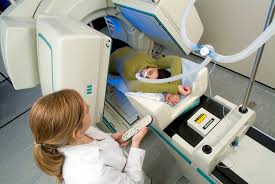
Where:
- Lake Imaging – St John of God Hospital Ballarat
Lung Function Tests (PFT)
Used to measure the function of the lungs to help diagnose lung disease. Spirometry tests use a spirometer device to measure how much the lungs can blow out in a full breath to see how much narrowing is present.
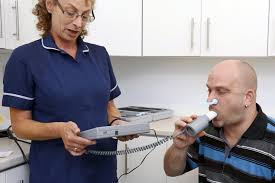
Where:
- Diagnostic Services – Ballarat Base Hospital
Gated Blood Pool Scan
Labelling red blood cells with a radiopharmaceutical and then measuring the amount of blood in the heart at different times. Measures the filling and emptying of the heart chambers.
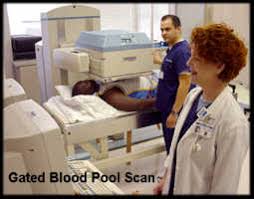
Where:
- Lake Imaging – St John of God Hospital Ballarat
Coronary Angiogram
Coronary Angiogram is a surgical procedure in which a special X-ray is taken of your heart’s arteries (the coronary arteries) is taken to see if they are narrowed or blocked.
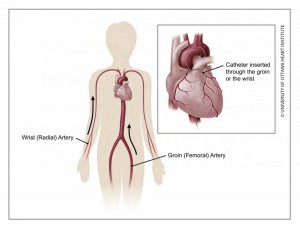
Procedure Information
+ Pre-Procedure:
- Your admitting Hospital will call you to go through your preadmission preparation via the phone.
- You will need to Fast from Midnight the night before your procedure.
- Continue to take all of your medications, unless you were informed by your cardiologist during your consultation.
- You will need to have a recent Chest Xray and Blood tests
+ Procedure:
- Coronary Angiogram is a Day Case so you will need to arrange for a family member or carer to bring you and pick you up upon Discharge. (If you are a patient who lives more than 2 hours away, then you will be admitted for an Overnight Stay)
- The Angiogram procedure is performed in a special ‘Cath-Lab’ which is similar to a theatre, and for Private patients usually performed at St John of God Hospital Ballarat or Ballarat Health Services Base Hospital for patients who are uninsured.
- Lying on a narrow table, you will be moved from side to side during testing.
- You will be connected to a machine that will monitor your heartbeat continuously throughout testing.
- An intravenous needle may be inserted to the back of your hand to allow medicines to be given during the test.
- Local anesthetic is administered through your wrist (sometimes groin area) where the catheter will be inserted into the main artery point.
- The Catheter moves through the main blood vessel (aorta) to the coronary arteries in the heart, which is watched via x-rays on a monitor. You most likely will not feel anything during this process as there are no nerves inside your arteries.
- Once the Catheter is in place, contrast dye* is injected and x-ray images are taken as the dye moves through the coronary arteries. (Certain catheters are required to study the different arteries, so will be replaced within the same area)
- Once your procedure has been finished, the catheter will be removed and you will be transferred to the Recovery area or ward.
- A standard Angiogram procedure takes about 30-40 minutes. And can most likely be discharged home within 4-6 hours (unless you live more than 2 hours away and are staying as an inpatient overnight).
* You may experience nausea, chest discomfort and a warm feeling in your upper chest to whole body upon injection of the contrast dye, but this will pass soon after within 10-15 minutes. The x-ray dye will pass through your kidneys and is excreted in your urine.
